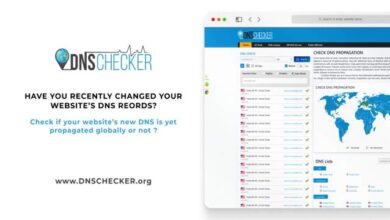The Importance of 127.0.0.1:49342 in Network Security

In network security, one of the most critical aspects that often flies under the radar is how your local network operates. Specifically, IP addresses and ports like “127.0.0.1:49342” play a vital role in maintaining your system’s security. You may have heard of “127.0.0.1,” commonly referred to as “localhost,” but why is this particular address so important, and what role does the port number (49342) play in keeping your data secure?
Knowledge “127.0.0.1:49342” helps in grasping how network communication works within your system. It may sound technical, but in this guide, I’ll break it down simply, so you’ll walk away knowing how these elements contribute to network security and why they’re critical for defending against cyber threats.
What Is 127.0.0.1:49342?
To begin, “127.0.0.1” is the loopback address used by your computer to refer to itself. It’s often called “localhost” and is used in networking for testing purposes, allowing you to simulate network connections without leaving your machine. The port number (in this case, 49342) adds another layer to this by defining a specific communication endpoint on your device.
Essentially, “127.0.0.1:49342” is a way for your computer to talk to itself, and it plays an important role in local testing, development, and sometimes in isolating sensitive processes that should not be exposed to the public internet. By keeping communication internal, the system ensures that certain data remains private and secure.
The Role of Localhost (127.0.0.1) in Network Security
In the world of network security, “127.0.0.1” is more than just a loopback address—it’s a critical tool for isolating network activity. Any traffic sent to “127.0.0.1” never leaves your machine, making it an ideal sandbox for testing applications, server configurations, or even security protocols.
Because this traffic stays local, it cannot be intercepted by external entities like hackers. This self-referencing IP is a built-in security feature in every operating system, and using it can prevent unnecessary exposure of your system to external threats. When network engineers or developers use “127.0.0.1:49342” during development or troubleshooting, they are protecting sensitive processes by keeping everything contained within their own machine.
Why Does the Port Number Matter?
Now, let’s talk about the port number. While “127.0.0.1” ensures that the traffic stays local, the port number defines where exactly that communication is headed within your system. Every port on your device has a specific role; some are reserved for well-known services, while others, like 49342, are often dynamically assigned during development or internal communication processes.
This port number is like a private channel within your local network. It allows multiple processes to run on “localhost” without stepping on each other’s toes. In network security, monitoring which ports are open and ensuring that they are properly configured is key to preventing unauthorized access. Even though “127.0.0.1:49342” is local, if misconfigured, it could open a backdoor for malicious software to exploit.
How 127.0.0.1:49342 Helps Prevent Cyber Attacks
The combination of a loopback IP and a local port like “127.0.0.1:49342” creates a shield around internal processes. Since this setup isolates network traffic from the outside world, it reduces the risk of external attacks like Distributed Denial of Service (DDoS), data theft, or port scanning.
Additionally, many cybersecurity tools and firewalls allow you to configure localhost ports as an extra layer of security. By keeping sensitive applications running locally, you ensure that no external entity can interact with them, thereby reducing the attack surface of your system. Hackers tend to target open ports and exposed services, but if your sensitive processes are locked behind localhost ports like 49342, they won’t even be able to detect their existence.
Best Practices for Configuring Localhost Ports

To maximize the security benefits of localhost, it’s essential to follow best practices when configuring ports. Here are a few tips:
- Use dynamic ports for internal communication: Avoid using common ports like 80 or 443 for localhost processes. By using random or high-numbered ports like 49342, you reduce the chances of malicious access.
- Monitor open ports: Regularly scan your system to ensure no unauthorized services are running on localhost ports.
- Leverage firewalls and security tools: Configure your firewall to block access to specific localhost ports if needed, adding an extra layer of protection.
How Developers Use 127.0.0.1:49342 for Testing
For developers, “127.0.0.1:49342” is an essential part of testing environments. Since it isolates traffic, developers can safely run web servers, databases, or API endpoints on localhost without risking exposure to the public internet. This not only ensures security during development but also speeds up the debugging process by eliminating network-related issues.
Additionally, many popular frameworks and applications default to using localhost for testing purposes. For example, Python’s Flask framework often runs on “127.0.0.1:5000” by default. Developers can easily swap in a different port, such as 49342, if needed, further personalizing their development environment while maintaining security.
The Bottom Line: Why You Should Care About 127.0.0.1:49342
In summary, “127.0.0.1:49342” may seem like just another combination of numbers and symbols, but it plays a crucial role in network security. It helps isolate traffic, prevent unauthorized access, and provides a safe testing environment for developers. Whether you’re a developer working on local applications or a security expert looking to harden your system, understanding how to use localhost addresses and ports effectively is key to keeping your data safe.
In a world where cyber threats are becoming more sophisticated, using local addresses like “127.0.0.1” combined with random ports such as 49342 is an important strategy for reducing vulnerabilities and protecting sensitive processes from external attacks.
I Was In Trouble With 127.0.0.1:49342
I recently faced an issue while working on a local development project where I needed to securely test an application. Initially, I was unsure how to prevent external access while still running the server locally. After some research, I realized the importance of using 127.0.0.1:49342 for isolating my network traffic.
By configuring the application to use 127.0.0.1 (the localhost address) and selecting an unused port like 49342, I ensured that all traffic stayed within my machine. This not only allowed me to test securely but also prevented any external access to my project. It was a simple fix that greatly improved the security of my workflow.
Frequently Asked Questions: Understanding 127.0.0.1 in Network Security
What is IP 127.0.0.1 used for?
The IP address 127.0.0.1, commonly known as “localhost,” is used by a computer to refer to itself. It is part of the loopback address range, which is reserved for internal testing and communication within a machine. When you use 127.0.0.1, it means that any network traffic sent to this address is looped back to your own device instead of being sent over the internet.
This is incredibly useful for testing applications, web servers, or network configurations without affecting or exposing the data to external networks. Developers often use 127.0.0.1 to safely run and test software on their local machine, simulating how the application would behave in a real-world network without exposing it to security risks from external traffic.
Is 127.0.0.1 safe?
Yes, 127.0.0.1 is safe to use because it is isolated from external networks. Any traffic directed to 127.0.0.1 stays within the local machine and never leaves it, preventing external entities from accessing or intercepting the data.
Because of its nature, 127.0.0.1 is commonly used in testing environments to ensure that network-based applications function correctly without exposing sensitive data or systems to the broader internet. However, you should still ensure that no malicious software on your machine is abusing this address for harmful purposes, as any vulnerability could still pose risks if exploited internally.
What does DNS server 127.0.0.1 mean?
When 127.0.0.1 is used as a DNS server address, it typically means that the machine is configured to use its own internal DNS resolver for domain name lookups. DNS (Domain Name System) is responsible for translating domain names (like example.com) into IP addresses. By pointing to 127.0.0.1 for DNS, the machine is telling itself to use an internal service for resolving these names instead of reaching out to external DNS servers.
This is common in development environments or for users running a local DNS resolver, where requests for domain names are handled locally on the device rather than by an external DNS provider. This setup helps reduce latency and ensures greater control over which domains are being resolved and how.
Is 127.0.0.1 home?
In a sense, yes, 127.0.0.1 can be thought of as “home” for any computer. It’s often referred to as “localhost,” and it’s the address that your machine uses to communicate with itself. Think of it like a private communication channel that never leaves the device.
For example, if you are running a web server on your computer and want to access it locally, you would navigate to “http://127.0.0.1” in your browser. This address allows the server and client (both running on the same machine) to communicate as if they were on different computers, even though all the traffic is happening within your local system. So, while it might not be “home” in the conventional sense, it’s the default, internal address that your computer always recognizes as its own.
Read also: Qualcomm’s Latest Snapdragon X Plus 8-Core Processor




